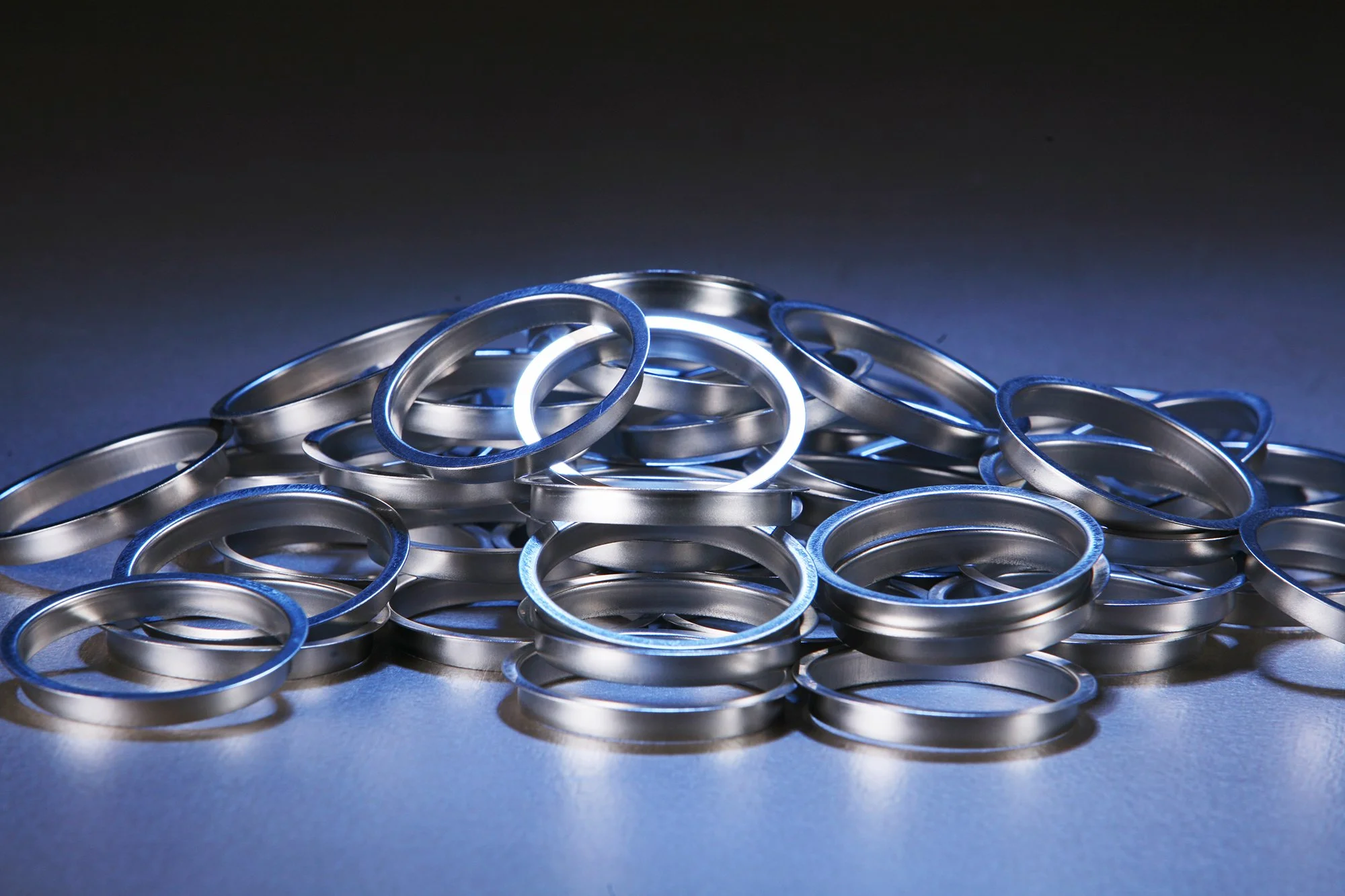Answers to the most frequently asked questions about Jay Manufacturing’s Services
What types of materials can a CNC machine work with?
Jay Manufacturing CNC machines can work with a wide variety of materials, including metals (aluminum, steel, brass, etc.), plastics, wood, composites, and ceramics.
What is metal stamping?
Metal stamping is a term used to refer to various press operations, including blanking, piercing, coining, embossing, deep drawing, and forming. This requires applying pressure or force to the surface of a strip or sheet of metal to make a part. Jay Manufacturing specializes in metal stamping with complex tooling. Hard tooling involves the production of customized dies configured to your design standards.
Can rubber be added to a stamped part?
Yes, Jay Manufacturing specializes in inserts for molded rubber parts. When a part design calls for rubber, it is usually molded or added to the part after the metal stamping process.
What is a CNC machine, and how does it work?
A CNC (Computer Numerical Control) machine is a computer-controlled device that automates the process of cutting, shaping, and machining materials (like metal, wood, plastic, etc.) based on pre-programmed commands. The machine uses software to direct tools with high precision to produce parts with intricate designs.
How large are Jay Manufacturing’s press bed sizes?
Jay Manufacturing runs 14 presses. Our largest press bed size is 29” x 50". The most significant part size we produce is 36” x 36”.
What are the costs associated with CNC machining?
Costs can vary widely depending on the complexity of the part, the material, the machine time required, and additional services like finishing and assembly. Generally, CNC machining is more cost-effective for producing small to medium-sized production runs.
What is the capacity of Jay Manufacturing’s presses?
Our 14 presses range in capacity from 2 tons to 200 tons, accommodating various customer needs.
What is the minimum tolerance for metal-stamped parts produced by Jay Manufacturing?
During our metal stamping operations, we can hold tolerances as close as 0.005". This tolerance will vary depending on the part, design, material, and other factors.
How fast do Jay Manufacturing’s presses run?
Our presses run 35 to 150 strokes per minute (SPM).
How do I get a quote for CNC machining?
To get a quote, you'll typically need to provide details such as the part design (CAD file), material specifications, quantity, tolerances, and any other special requirements. You may reach out here on our website, or for immediate assistance, we encourage you to call and speak directly with a representative.
What thickness of metal can Jay Manufacturing stamp?
We stamp parts with a wide range of thicknesses. The thickness of the metal we can stamp is determined by customers’ design specifications and the ultimate tonnage of the part to be produced.
What materials does Jay Manufacturing use in the manufacturing of your stamped parts?
We will stamp most metals and alloys specified by the customer, including:
• Steel (cold rolled, hot rolled, galvanized, high and low carbon)
• Stainless steel of most alloys
• Aluminum (all alloys and tempers)
• Brass
• Copper
• Bronze
• Titanium
• Wire Mesh
Can Jay Manufacturing stamp more than one part in your metal stamping operations?
Yes, the process is called nesting, and using it effectively allows us to keep production costs competitive while lowering material costs.
How accurate are CNC machines?
CNC machines are known for their high precision, with accuracies often in the range of ±0.001 inches (0.025 mm) or better, depending on the machine type, tooling, and materials used.
What is the smallest size part Jay Manufacturing will stamp?
We can stamp washers as small as .25” OD with .060” ID.
What industries use CNC machines?
Jay Manufacturing CNC machines are used across various industries such as automotive, aerospace, electronics, medical, manufacturing, woodworking, and even jewelry making.
What types of CNC machines do you offer?
Jay Manufacturing offers a range of CNC mills and CNC lathes, each suited for different types of jobs and materials.
What is the lead time for CNC machining services?
Lead times vary based on the complexity of the part, material availability, and machine scheduling. Typically, lead times can range from a few days to several weeks, depending on the project.

